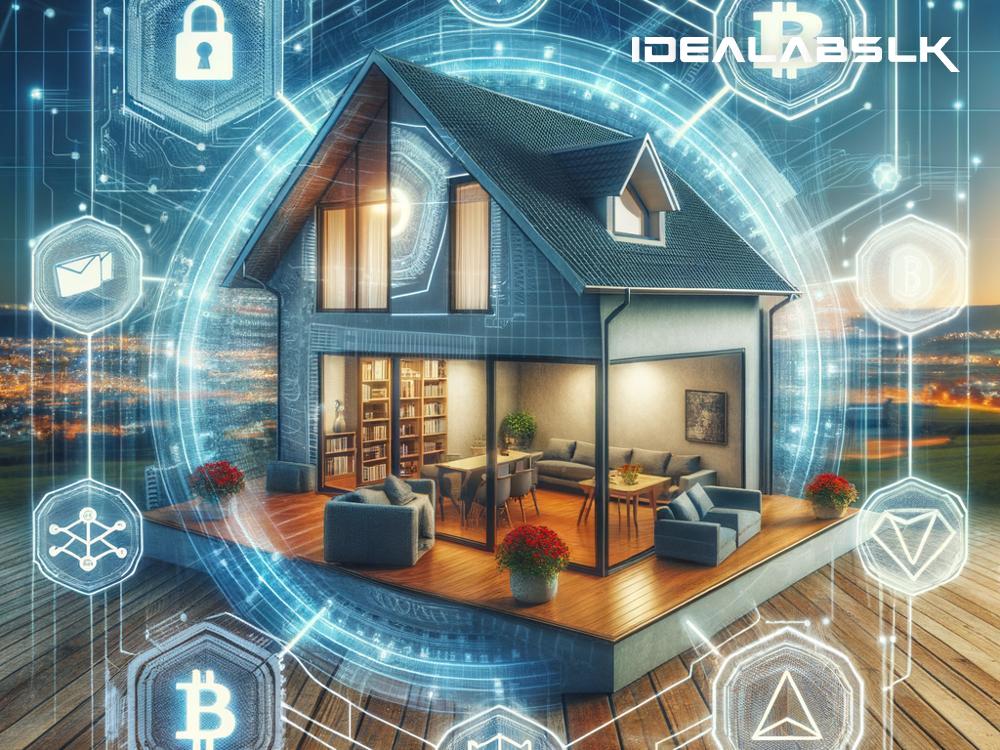Blockchain for Real Estate: How Smart Contracts are Transforming the Home Buying Process
When we think about buying a house, we often imagine piles of paperwork, endless signatures, and a lengthy process full of complications and intermediaries like agents, lawyers, and banks. It's a process that can be overwhelming and stressful. But what if technology could streamline and simplify the entire home buying process, making it faster, more secure, and transparent? Enter Blockchain and smart contracts, a duo that's set to revolutionize the real estate world.
Understanding Blockchain and Smart Contracts
Before diving into how these technologies are changing real estate, let's break them down. Blockchain is essentially a digital ledger, a kind of database, but with a twist. It's decentralized, meaning it isn't stored in just one place or controlled by a single entity. Instead, it's spread across multiple locations, making it highly secure and almost impossible to tamper with. Think of it as a public record that everyone can see, but no one can alter unfairly.
Smart contracts are self-executing contracts with the terms of the agreement directly written into lines of code. They automatically enforce and execute the terms of a contract as soon as conditions are met. No need for a middleman to confirm that each party has done their part; the smart contract takes care of it.
Reshaping the Home Buying Process
Speed and Efficiency
The traditional process of buying a home is not only complex but also time-consuming. It involves multiple steps and verification from various parties, which can significantly drag out the timeline. Blockchain and smart contracts simplify and accelerate this process. All information, including property details, ownership history, and financial transactions, can be securely stored on a blockchain. Smart contracts can automate many steps like property searches, initial agreements, and payments, cutting down the buying process from months to weeks or even days.
Security and Transparency
One of the biggest fears in real estate transactions is fraud. However, the immutable nature of blockchain reduces the risk significantly. Once data is recorded in a blockchain, it cannot be altered without consensus among participants, making it a secure and trustworthy technology. Additionally, the transparency of blockchain allows all parties to view transaction histories and property details, fostering trust and confidence among buyers, sellers, and agents.
Reduced Costs
Real estate transactions typically involve various fees for agents, legal services, and other intermediaries. By automating many steps in the process, smart contracts can eliminate or reduce the need for some of these intermediaries, lowering the overall cost of buying a home. Moreover, with the automation provided by smart contracts, errors and the need for repetitive document checks are significantly minimized, which also contributes to cost reduction.
Accessibility
Blockchain can democratize access to real estate investment. Through tokenization, property ownership can be divided into tokens that represent shares in property ownership. This means that investing in real estate can become more accessible to a wider range of people, not just those with significant capital. Individuals can buy and sell tokens much like stocks, making real estate investment more flexible and liquid.
Examples and Real-world Applications
Several startups and companies are already implementing blockchain and smart contracts in real estate. For instance, Propy is a platform that facilitates real estate transactions on the blockchain, allowing buyers, sellers, and agents to navigate the entire process securely and efficiently. Another example is RealT, which allows for fractional ownership of properties through blockchain, making real estate investment more accessible to the average person.
The Road Ahead
While the potential of blockchain and smart contracts in real estate is immense, widespread adoption still faces challenges. These include regulatory hurdles, the technology's complexity, and the need for a shift in mindset from traditional practices. However, as technology continues to evolve and stakeholders become more familiar with its benefits, the integration of blockchain in real estate is expected to grow.
Conclusion
The promise of blockchain and smart contracts in reshaping the home buying process is exciting. By making transactions faster, more secure, and transparent, and by reducing costs and opening up new investment opportunities, this technology has the potential to transform real estate deeply. As we move forward, the dream of a simplified and democratized real estate market seems increasingly within reach, marking a new era of buying and selling properties.

